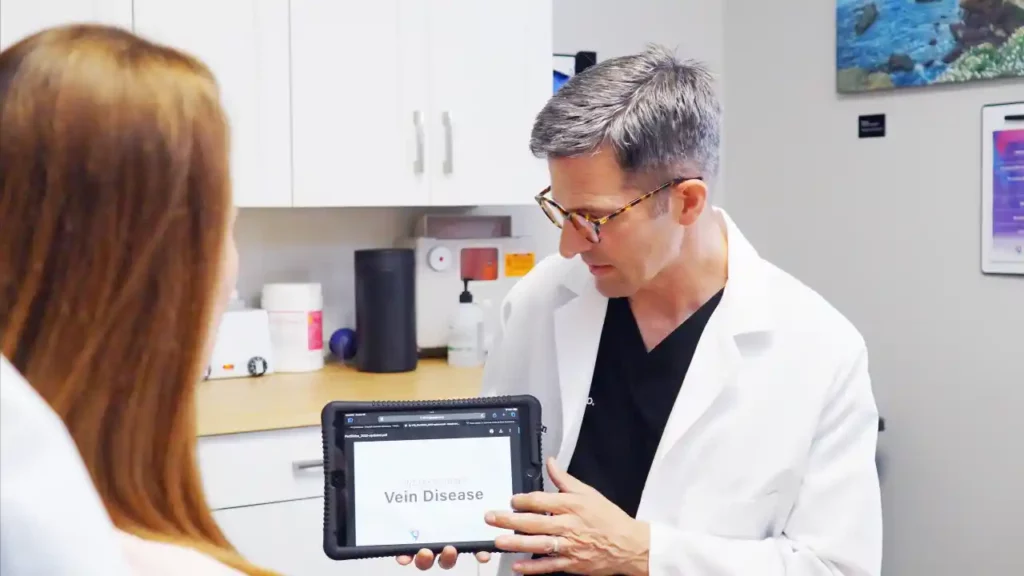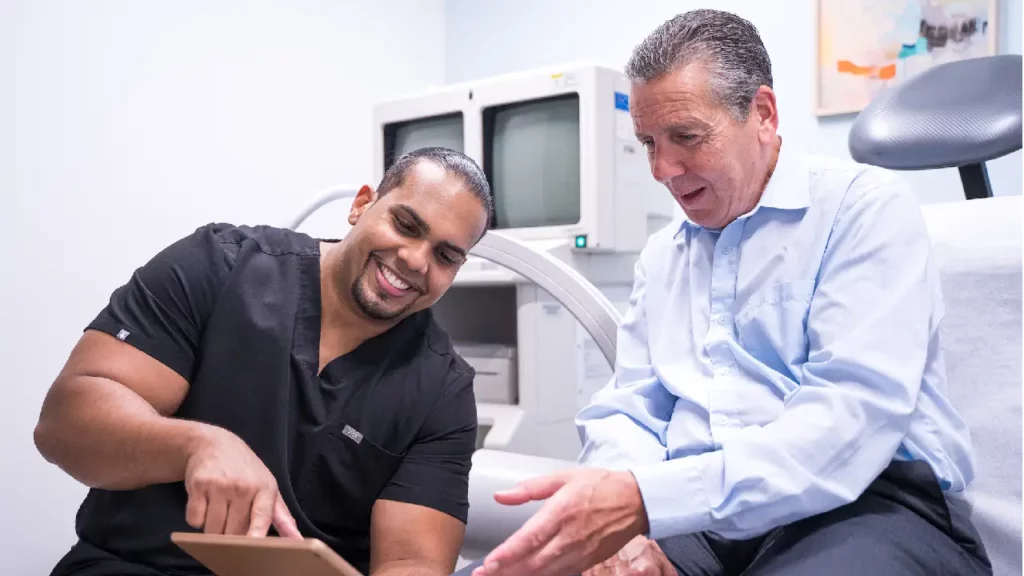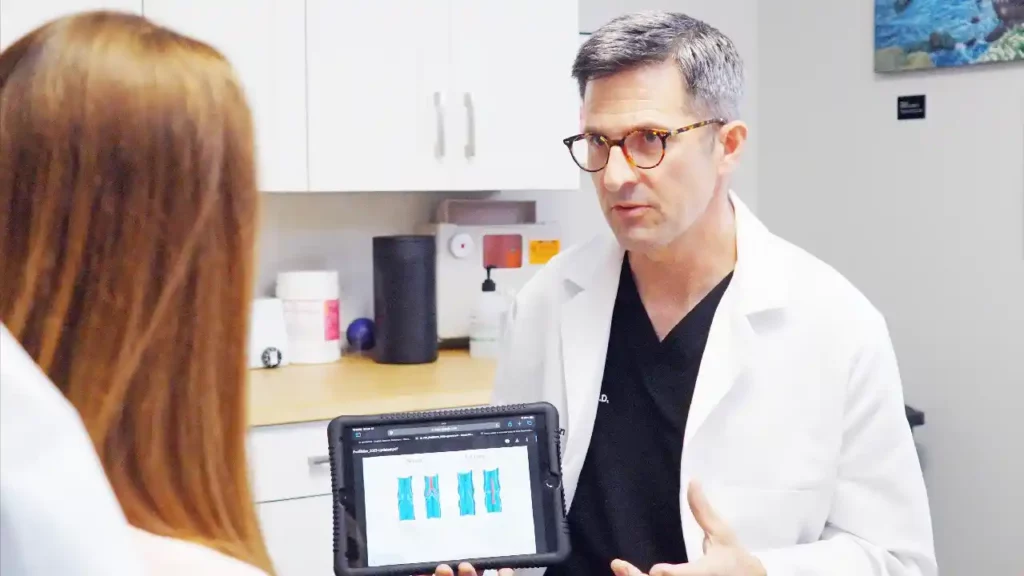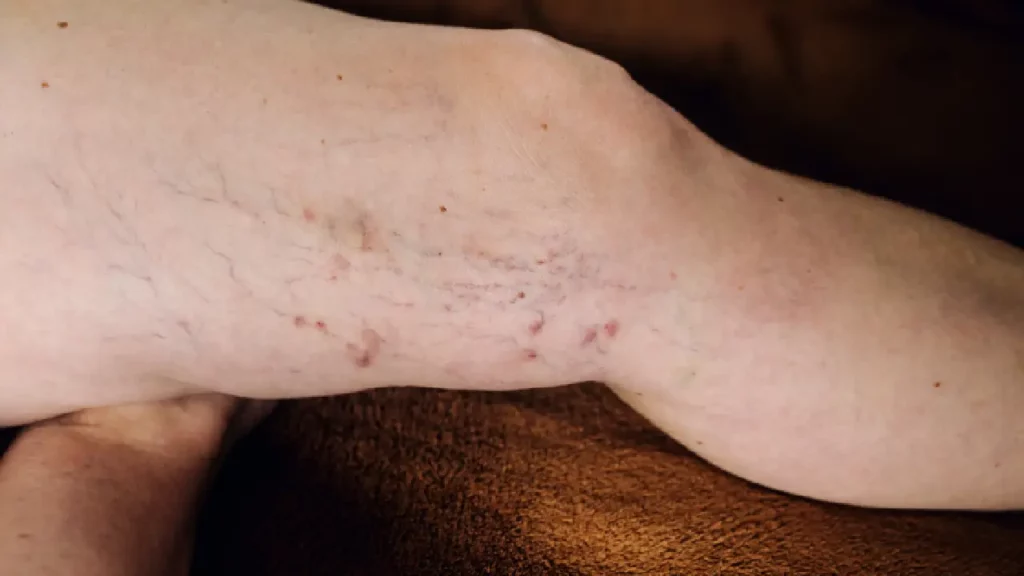Ozempic and Weight Loss: Does It Reduce Spider Veins?
Spider veins affect millions of individuals worldwide, particularly women. These tiny, visible veins near the surface of the skin can cause discomfort, itching, and aesthetic concerns, making you feel self-conscious about showing off your legs. At Vein Doctor, we understand the importance of treating spider veins effectively while addressing their underlying causes.
One factor frequently associated with spider veins is weight, as excess body weight can significantly impact vein health. Recently, medications like Ozempic have garnered attention for their weight-loss benefits, leading to questions about whether weight reduction through these medications can help mitigate spider veins. This article delves into the relationship between Ozempic, weight loss, and spider veins and the role of weight management in vein health.
What Are Spider Veins?
Spider veins, also known as telangiectasias, are small, thin veins that appear red, blue, or purple and form web-like patterns under the skin’s surface. They often develop on the legs and face and, while typically painless, may cause itching or mild irritation. Spider veins occur when tiny valves in the veins weaken or malfunction. These valves are responsible for maintaining one-way blood flow to the heart. When they fail, blood can pool in the veins, causing them to dilate and become more visible.
Several factors contribute to the development of spider veins, including:
- Genetics: A family history of spider veins increases the likelihood of developing the condition.
- Hormonal Changes: Pregnancy and menopause can increase the risk of spider veins.
- Prolonged Standing or Sitting: Occupations requiring extended periods of immobility can hinder blood flow, causing blood to accumulate in the leg veins and form spider veins.
- Age: As people age, the vein walls and valves naturally weaken, leading to spider veins.
- Obesity: Excess body weight exerts additional pressure on the veins, increasing the risk of venous insufficiency and spider veins.
How Does Weight Affect Vein Health?
Excess weight is one of the most significant risk factors for spider veins and other venous conditions. Carrying extra body weight increases the pressure on the veins in the legs, where spider veins most commonly form. This added strain can impair the veins’ ability to return blood to the heart efficiently, leading to blood pooling and vein dilation.
Weight loss can alleviate this pressure, improve circulation, and potentially reduce the risk of new spider veins. However, it’s important to note that losing weight does not reverse existing spider veins. It may prevent the formation of new spider veins and alleviate some of the symptoms of vein disease, but the only way to remove stubborn spider veins is through minimally invasive vein treatments like sclerotherapy.
For individuals struggling to lose weight, medications like Ozempic offer a potential solution.
What Is Ozempic?
Ozempic (semaglutide) is an FDA-approved medication initially developed to manage type 2 diabetes. It belongs to a class of drugs called GLP-1 receptor agonists, which mimic the action of the glucagon-like peptide-1 (GLP-1) hormone. GLP-1 plays a crucial role in regulating blood sugar levels by stimulating insulin production and reducing the release of glucagon.
In addition to controlling blood sugar, Ozempic has demonstrated significant weight-loss benefits in clinical studies. By reducing appetite and promoting a feeling of fullness, Ozempic helps patients consume fewer calories, supporting long-term weight management. Since Ozempic can help you lose weight, it may also reduce the symptoms of venous insufficiency or help you reduce the risk of new spider veins.
Can Weight Loss Improve Spider Veins?
Weight loss can positively impact vein health. Shedding excess weight reduces the strain on veins, enhances blood flow, and decreases the risk of blood pooling in the legs. These can reduce the severity of spider veins and may help prevent new ones from forming.
However, it’s crucial to recognize that weight loss alone does not eliminate existing spider veins. Once spider veins develop, they require targeted treatments to be effectively removed. While Ozempic and other weight-loss strategies may contribute to improved vein health indirectly, they cannot replace minimally invasive procedures meant specifically for spider vein treatment.
That said, research focusing specifically on Ozempic’s effects on vein health is still limited. Most studies have concentrated on its role in managing diabetes and promoting weight loss, leaving questions about its direct impact on venous conditions unanswered. Further research is needed to explore the potential connections between Ozempic, weight loss, and spider veins.
Lifestyle Tips to Support Vein Health
For optimal vein health, it’s important to combine weight-loss medications like Ozempic with healthy lifestyle habits. At Vein Doctor for Women, we recommend the following strategies:
- Exercise Regularly: Engage in activities such as walking, swimming, cycling, and yoga to promote blood flow and strengthen the muscles that support your veins.
- Adopt a Nutritious Diet: Focus on whole, unprocessed foods, including fruits, vegetables, lean proteins, and whole grains. Limit high-salt foods to prevent water retention and additional vein pressure.
- Stay Hydrated: Drinking plenty of water supports proper blood circulation and prevents blood from thickening.
- Elevate Your Legs: Periodically elevate your legs throughout the day to reduce venous pressure and improve blood flow.
- Wear Compression Stockings: Compression stockings provide additional support for your veins, reducing swelling and improving circulation.
Treating Spider Veins at Vein Doctor for Women
At Vein Doctor for Women, we specialize in minimally invasive treatments to eliminate spider veins and improve overall vein health. Our board-certified vein specialists use state-of-the-art techniques to deliver effective results with minimal discomfort. The most effective spider vein treatment is sclerotherapy, which involves injecting a sclerosant solution directly into spider veins, causing them to collapse and eventually fade away.
However, sclerotherapy can only treat spider veins — not underlying venous insufficiency. If your spider veins are caused by underlying vein disease, as determined through ultrasound scans, our vein doctors may recommend additional vein treatments like endovenous laser ablation, radiofrequency ablation, or VenaSeal. These minimally invasive vein treatments use various methods to close the diseased vein, rerouting the accumulated blood to healthier leg veins. Treating underlying vein disease leads to long-lasting results.
Consult Vein Doctor for Women to Improve Your Vein Health
Weight loss is vital in maintaining healthy veins and reducing the risk of spider veins. While medications like Ozempic can support weight management and indirectly benefit vein health, further research is needed to establish a definitive link between Ozempic and spider vein reduction. At Vein Doctor for Women, we are dedicated to providing comprehensive care tailored to your needs. Whether you seek guidance on weight management or minimally invasive vein treatments for spider veins, we encourage you to schedule a consultation.






